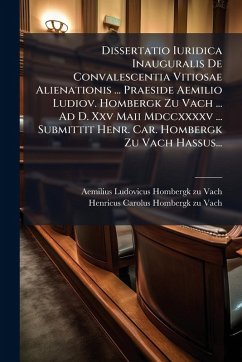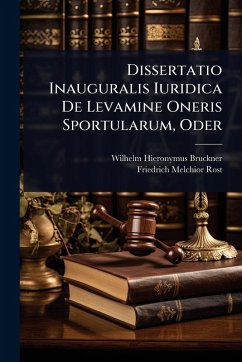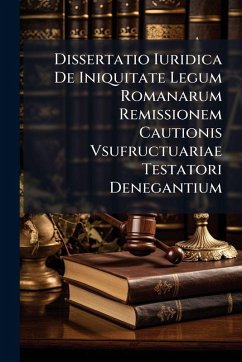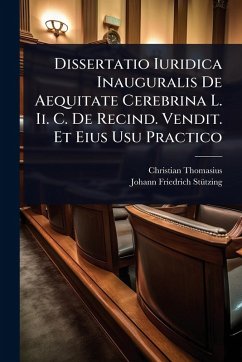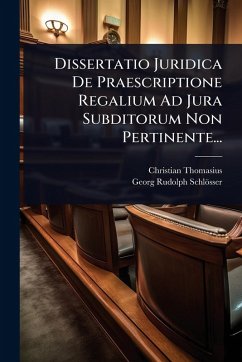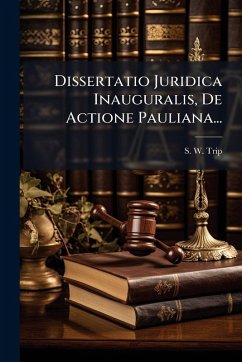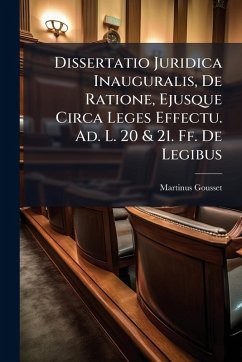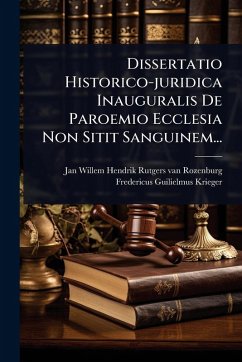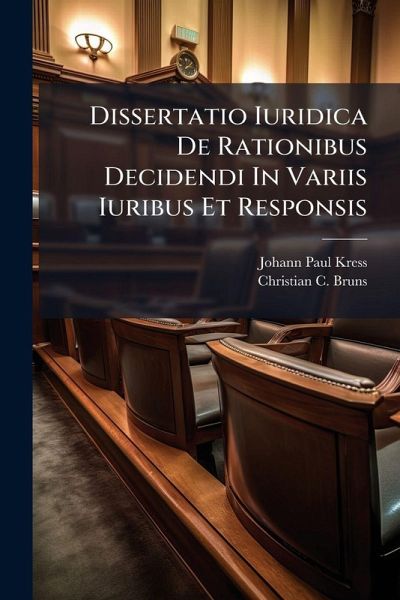
Dissertatio Iuridica De Rationibus Decidendi In Variis Iuribus Et Responsis

PAYBACK Punkte
8 °P sammeln!
"Dissertatio Iuridica De Rationibus Decidendi In Variis Iuribus Et Responsis" by Johann Paul Kress and Christian C. Bruns explores the rationales behind legal decisions across various laws and responses. This work delves into the historical and theoretical foundations of jurisprudence, examining the principles that guide legal reasoning. It is valuable for scholars and students interested in the evolution of legal thought and the complexities of legal decision-making in historical context. The book provides insight into the intellectual frameworks that have shaped legal systems. This work has ...
"Dissertatio Iuridica De Rationibus Decidendi In Variis Iuribus Et Responsis" by Johann Paul Kress and Christian C. Bruns explores the rationales behind legal decisions across various laws and responses. This work delves into the historical and theoretical foundations of jurisprudence, examining the principles that guide legal reasoning. It is valuable for scholars and students interested in the evolution of legal thought and the complexities of legal decision-making in historical context. The book provides insight into the intellectual frameworks that have shaped legal systems. This work has been selected by scholars as being culturally important, and is part of the knowledge base of civilization as we know it. This work was reproduced from the original artifact, and remains as true to the original work as possible. Therefore, you will see the original copyright references, library stamps (as most of these works have been housed in our most important libraries around the world), and other notations in the work. This work is in the public domain in the United States of America, and possibly other nations. Within the United States, you may freely copy and distribute this work, as no entity (individual or corporate) has a copyright on the body of the work. As a reproduction of a historical artifact, this work may contain missing or blurred pages, poor pictures, errant marks, etc. Scholars believe, and we concur, that this work is important enough to be preserved, reproduced, and made generally available to the public. We appreciate your support of the preservation process, and thank you for being an important part of keeping this knowledge alive and relevant.



